Slack and Teams are the two most popular collaboration tools, with features designed to improve communication and productivity. Although they share similarities, they also have distinct differences.
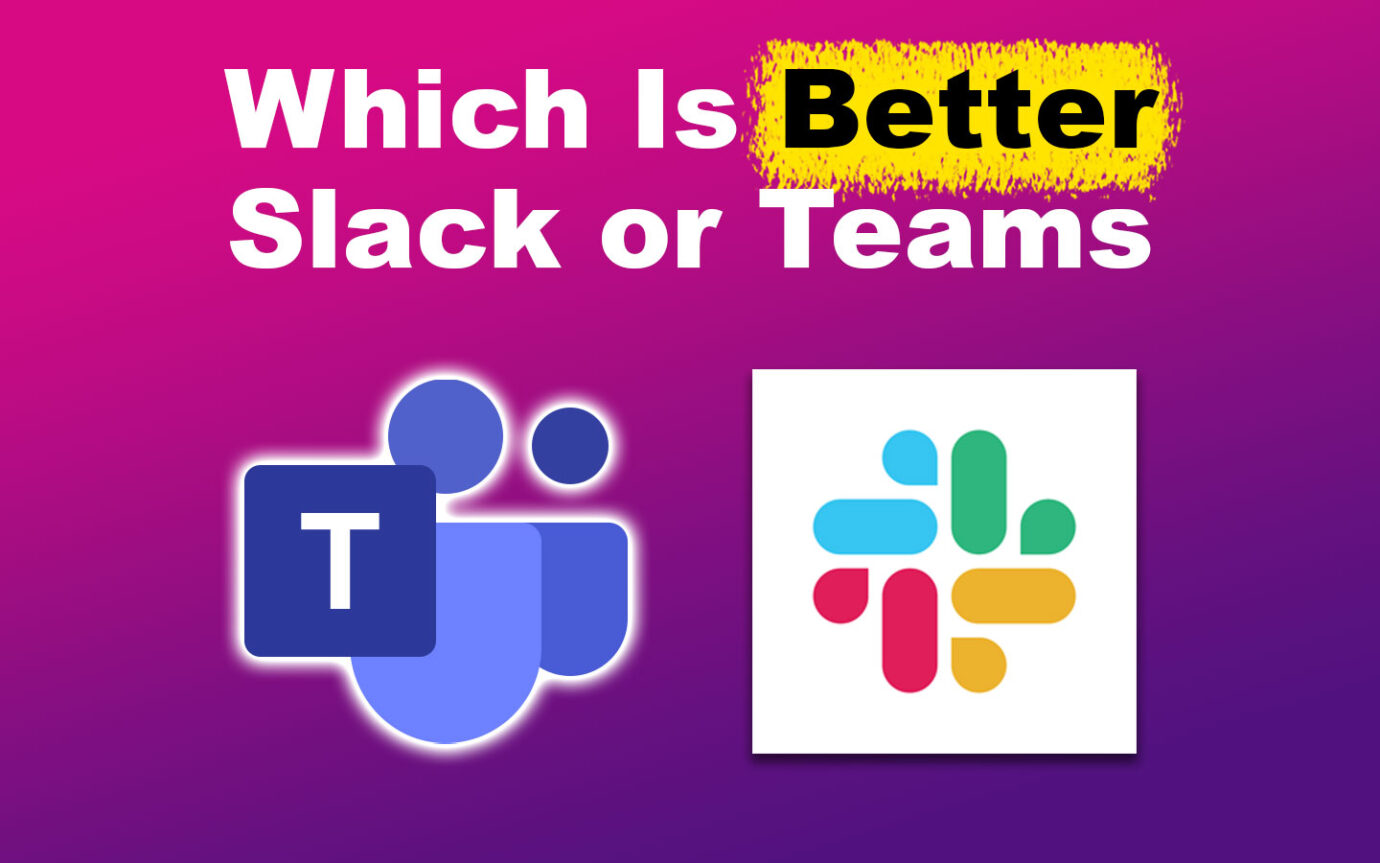
So which is better, Slack or Teams? Well, it depends! Each platform has unique features that make it suitable for specific needs. If you are finding it hard to make a choice, we’ve got you covered!
This article will outline the differences between Slack and Teams to help you make an informed decision.
5 Slack vs Teams Comparison
Here are the five Slack vs Teams comparisons:
1. User Interface
Slack
Slack’s mobile and computer interface is simple and direct to use. It has a well-organized design that displays channels and conversations in the sidebar. You can also personalize the app’s layout with various color themes.
Slack Help has an article discussing changing your Slack account’s theme.
Microsoft Teams
While Teams offers a quite similar interface to Slack, it appears busier due to the various features and options on the screen. However, you can customize its layout to suit your needs.
Find out how to change Teams’ layout on Microsoft Support.
So, while both applications have comparable interfaces, Slack is better than Teams in this section as it offers a simple layout.
2. Integrations
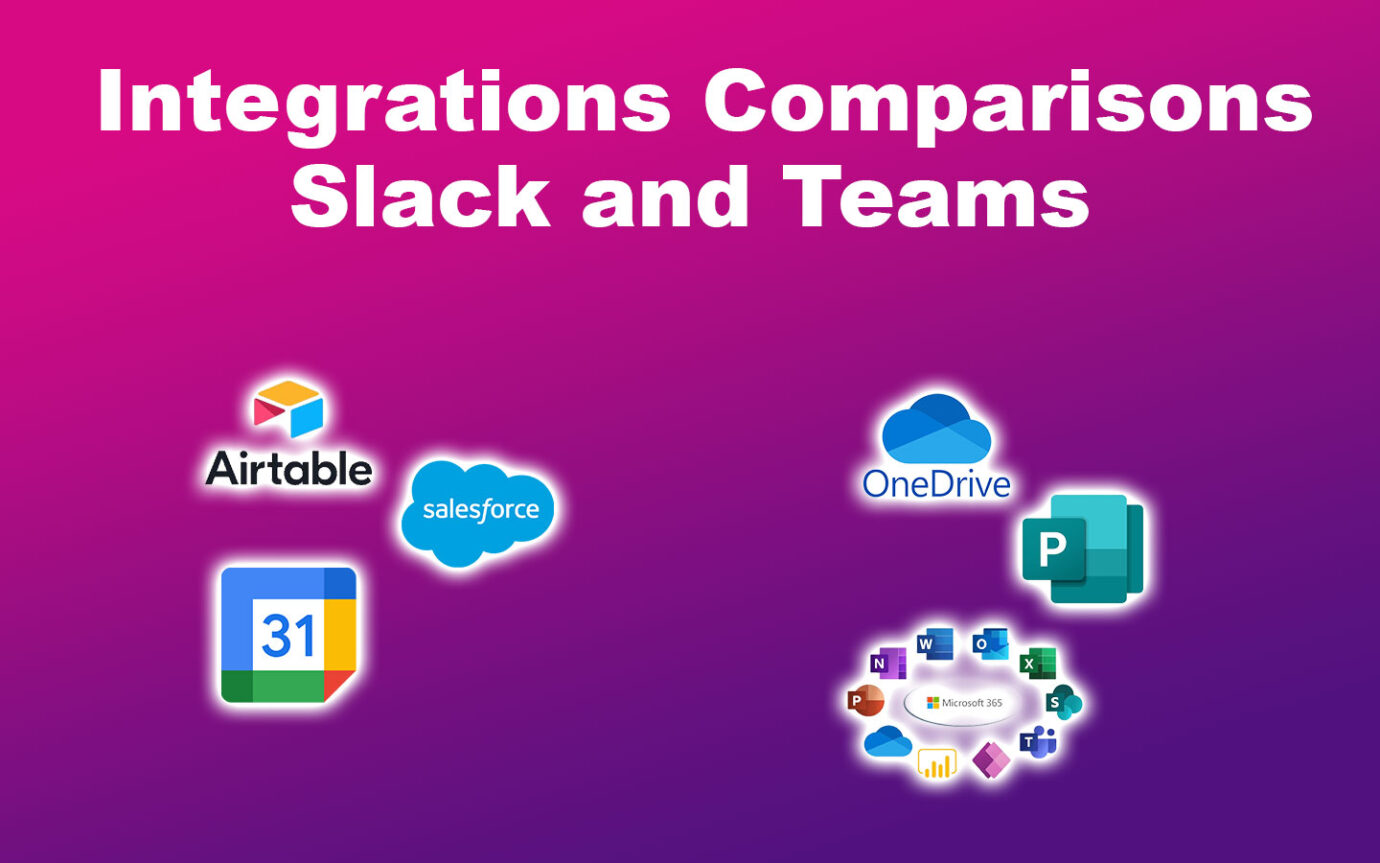
Slack
Slack has an extensive directory of over 2200 third-party app integrations, including Google Calendar, Airtable, and Salesforce. The app directory is more comprehensive if you subscribe to a paid plan.
Another great Slack feature is its ability to open Slack threads in different windows.
Microsoft Teams
Teams primarily integrates with Microsoft 365. However, if you upgrade to the paid plan, you can integrate with various third-party apps such as OneDrive, Publisher, and more. Additionally, you will gain the ability to record meetings.
In total, Microsoft Teams has more than 600 apps that you can integrate into your account. These include 48 Microsoft Teams plugins, software, and apps.
Slack is better than Teams in this category, offering more third-party app integrations.
Teams might be a better choice if you’re using Microsoft Outlook. You can now add Teams to Outlook for an easier schedule management.
3. Pricing
Slack
Slack has four pricing tiers: Free, Pro, Business+, and Enterprise grid. The Free plan allows up to 10 integrations and 10,000 message archives. The Pro plan costs $7.25 per month /user and provides unlimited apps, message archives, and group video calls with screen sharing.
Meanwhile, the Business Plan costs $12.50 per month /user and includes all the Pro plan features, user provision options, and data export for all messages.
The price of the Enterprise Grid plan varies depending on your needs. It comes with all the features of the Business+ plan, tailored customer support, and unlimited workspaces.
Want to know more about Slack plans? Here’s a feature comparison between free and paid Slack.
Microsoft Teams
Microsoft Teams also offers four different tiers – the free plan, Microsoft Teams Essentials, Microsoft 365 Business Basic, and Microsoft 365 Business Standard.
The free plan allows group meetings for a maximum of 100 participants for up to 60 minutes. The Essentials version costs $4 per month/user and offers unlimited group meetings of up to 30 hours and 300 participants.
Meanwhile, the 365 Business Basic plan costs $6 per month/user, with all the Essential plan features, plus 1TB storage, video conferencing, and online recording with transcripts.
The 365 Business Standard plan costs $12.50 per month/user and offers all the features provided in the Business Basic Plan and access to Microsoft bookings and webinar hosting.
Microsoft Teams wins this section because its premium plan offers better value.
PortfoLink also has a comparison of Zoom and Google Chat. Read it here.
4. Security
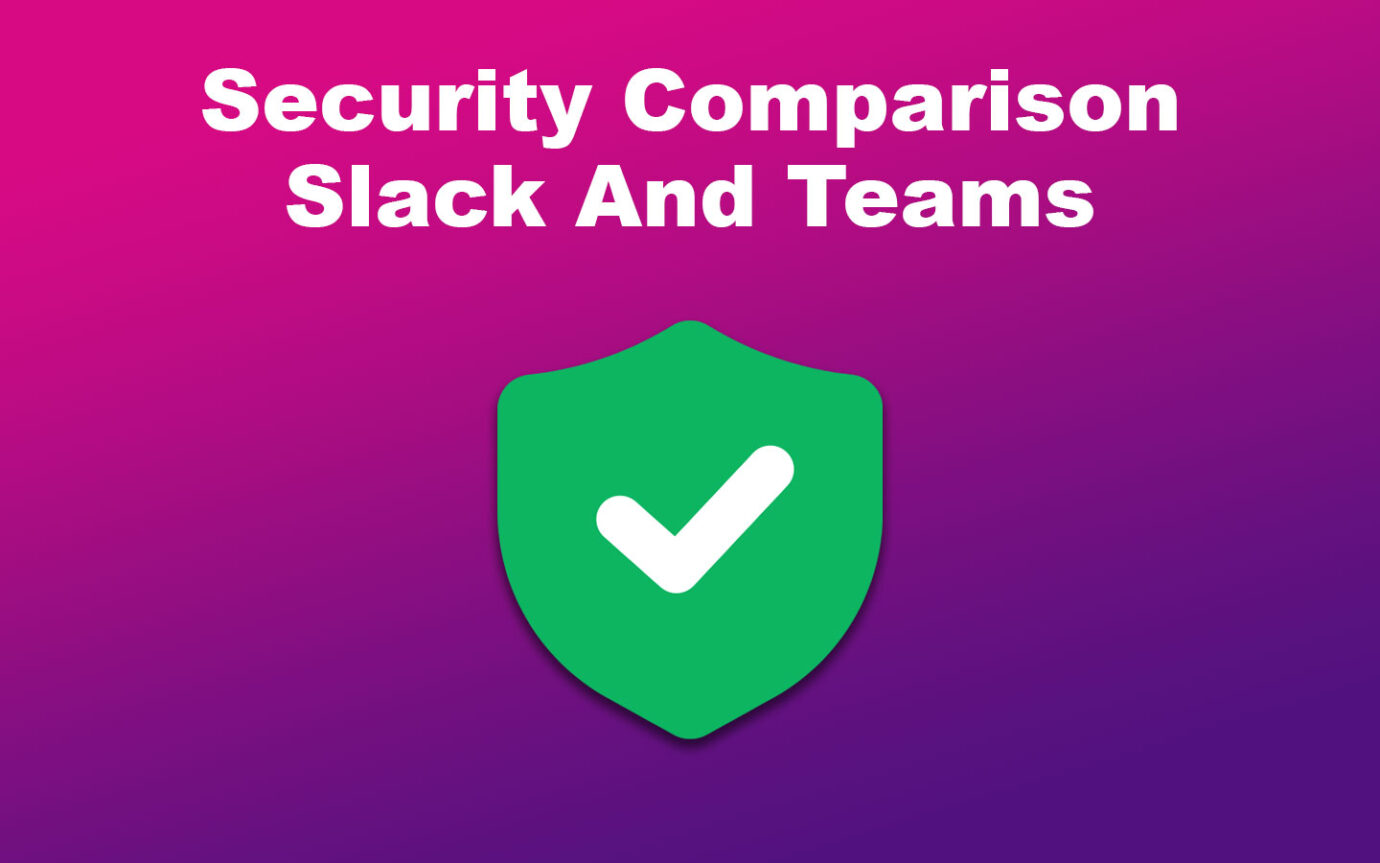
Slack
Slack has various security features, including two-factor authentication, data encryption, channel controls, and data loss prevention. Additionally, Slack follows the best privacy and data protection practices, including complying with ISO certifications such as ISO 27001.
However, it’s worth noting that Slack doesn’t provide end-to-end encryption. Instead, it encrypts user data at rest and in transit, protecting it only to the extent of its security policies.
Find out more about Slack’s security features on Slack’s official website.
Microsoft Teams
Microsoft Teams provides end-to-end encryption to protect your data during transmission. It also includes advanced threat protection (ATP), secure guest control, and data loss prevention.
Learn Microsoft has more information about Microsoft Teams’ security features.
Microsoft Teams is better than Slack in this category, as it offers more data encryption.
5. Channels
Slack
Slack uses channels for organizing conversations and collaboration between members, clients, agencies, or vendors. Channels can be public or private, allowing you to control who can access and participate in discussions.
Microsoft Teams
This platform uses channels for collaboration. Every channel covers a particular interest, project, or department. It also allows you to create a channel within a channel to improve group cooperation.
Channels can be either private or public. In a private channel, you can only participate in or view conversations if invited. On the other hand, posts on public channels are viewable by others in the organization.
Microsoft Teams wins this section as it offers more channel options.
Google Chat is another communication tool that offers fantastic features. Check out this Slack vs. Google Chat comparison to see which tool better fits your needs.
Which Is Better: Slack or Teams?
Slack is better if you want a platform with a simple user interface and many third-party integrations. Microsoft Teams is the best choice if you need a platform with more channel options, better pricing, and security features. Still, the choice depends on your needs and budget.
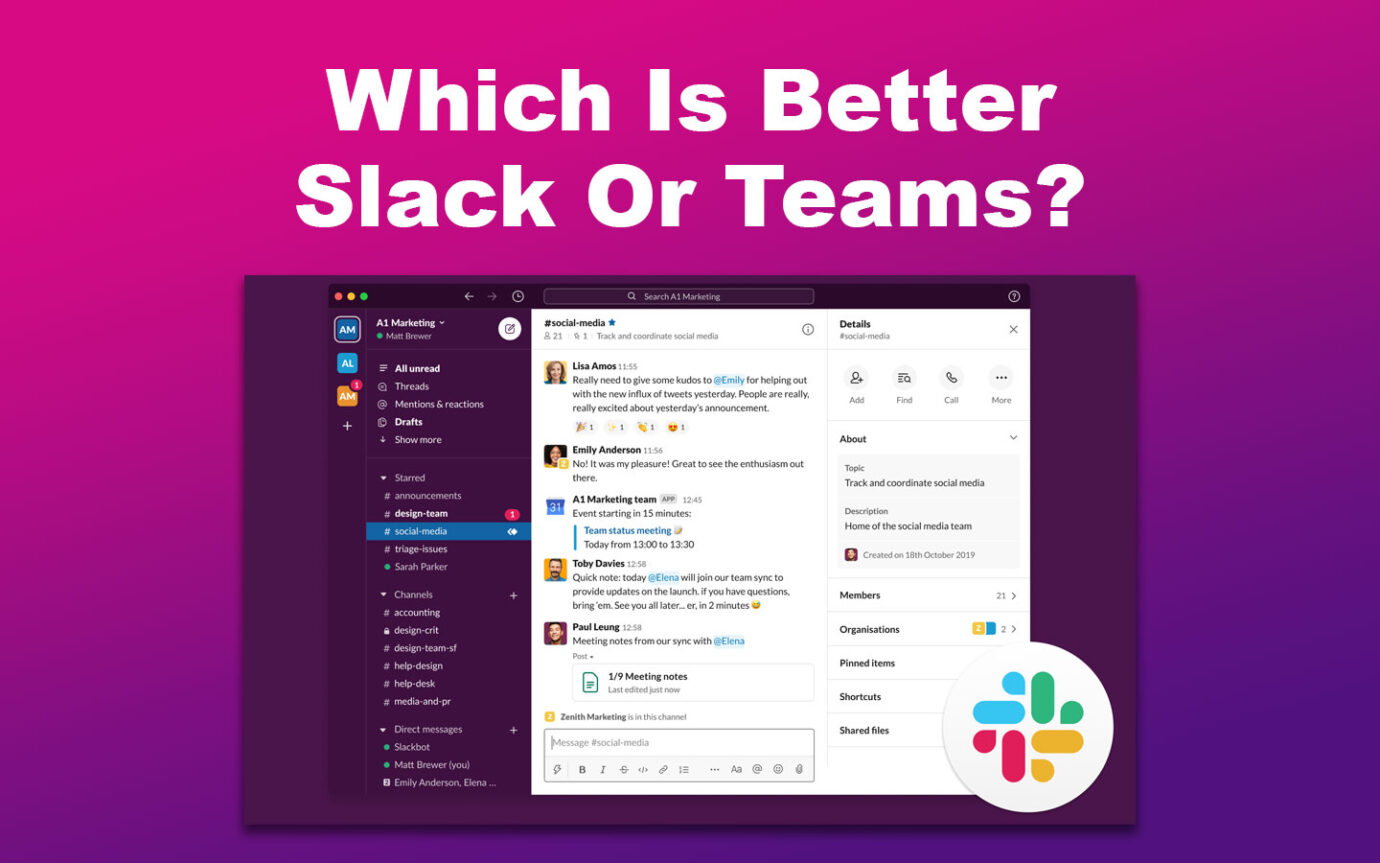
You can also check platform reviews and user satisfaction before choosing one. This way, you can get feedback on any potential drawbacks.
If you’re using Slack and you want to transcribe Slack huddles, check out this article.
Is Slack Good for Small Teams?
Yes, Slack is a good tool for small teams as it’s user-friendly and cost-effective, has a centralized platform, and offers mobile accessibility. The platform has a simple interface streamlines communication and collaboration within small teams.
Besides, it offers a free plan for small teams, making it an affordable option for start-ups and small businesses. Its centralized platform also eliminates the need for multiple tools and apps, as all cooperation and communication can be done within the app, saving costs.
Lastly, Slack’s mobile accessibility makes it flexible for teams to communicate even when they are away from their computers.
Does Slack Compete With Teams?
Yes, Slack competes with Teams in terms of brand and integration with other tools and apps. Both platforms integrate with other tools, but the quality and availability of these integrations are the key factors in the platforms’ competition.
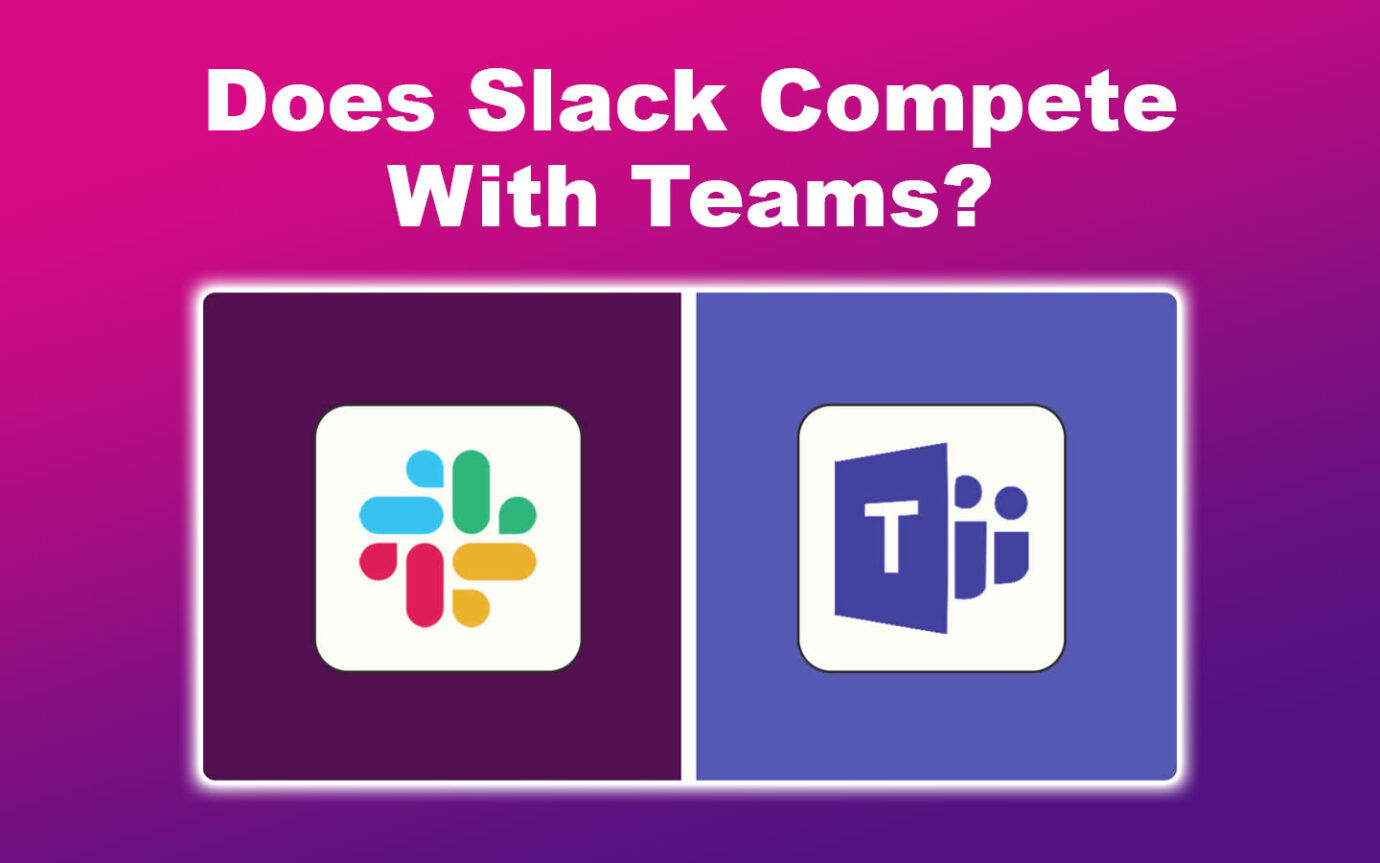
Similarly, both platforms strive to establish themselves as trusted brands. Slack has a reputation for being ideal for smaller teams and start-ups, while Teams leverages its association with Microsoft.
Slack and Teams also compete in terms of available features, such as messaging and video conferencing. For example, Teams has more robust video conferencing capabilities, while Slack offers superior chat options.
Looking for Teams and Slack alternatives? Check out this list of free remote communication apps!
Strengths and Weaknesses of Slack
Here are the strengths and weaknesses of Slack:
Strengths of Slack
- Customizable Notifications.
Slack lets you adjust your notification settings to your preference. You can choose which channels or conversations to receive alerts from, improving focus. - Availability.
Slack allows seamless collaboration across multiple devices and operating systems, regardless of location. - Scalability.
Slack is a flexible tool that adapts to the evolving needs of both startups and large enterprises. - Search Functionality.
Slack’s excellent search functionality lets users quickly find messages and files, saving time.
Another tool often compared to Slack is email. But is Slack more secure than email? Find out here.
Weaknesses of Slack
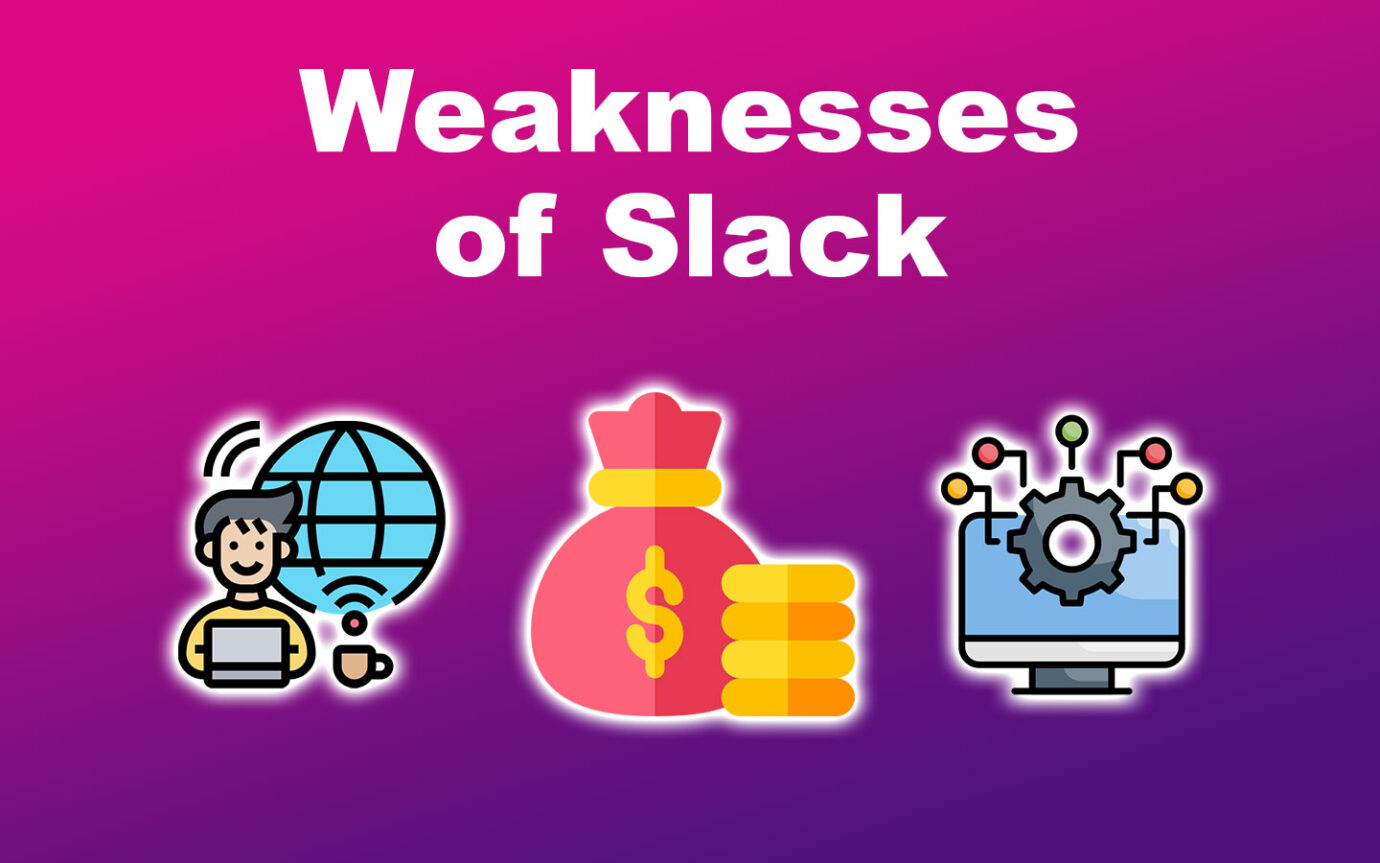
- Integration Problems.
It can be challenging for teams to work effectively on Slack, as not all applications are compatible with the platform. - Cost.
Although Slack’s basic version is free, you must upgrade to a paid plan to access all the features, which can be expensive for small businesses. - Reliance on the Internet.
Slacks’ over-reliance on the internet makes it less suitable for use in areas facing network issues. A slight disconnection may hinder proper communication.
Learn more about the pros and cons of Slack from Forbes.
Strengths and Weaknesses of Teams
These are the strengths and weaknesses of Teams:
Strengths of Teams
- Task Management.
Teams have task management features that allow you to assign tasks, set due dates, and track progress. This helps teams stay organized and on top of their work. - Advanced Security.
Teams use data encryption and 2-factor authentication to protect sensitive information and ensure privacy. - Available Across Devices.
Teams is accessible on multiple devices, including Android, Windows, iOS, and macOS. This allows users to access it on their preferred devices, making collaboration easy. - Analytics.
Teams also have analytics and reporting features to track usage, monitor performance, and identify areas for improvement for team leaders.
Weaknesses of Teams
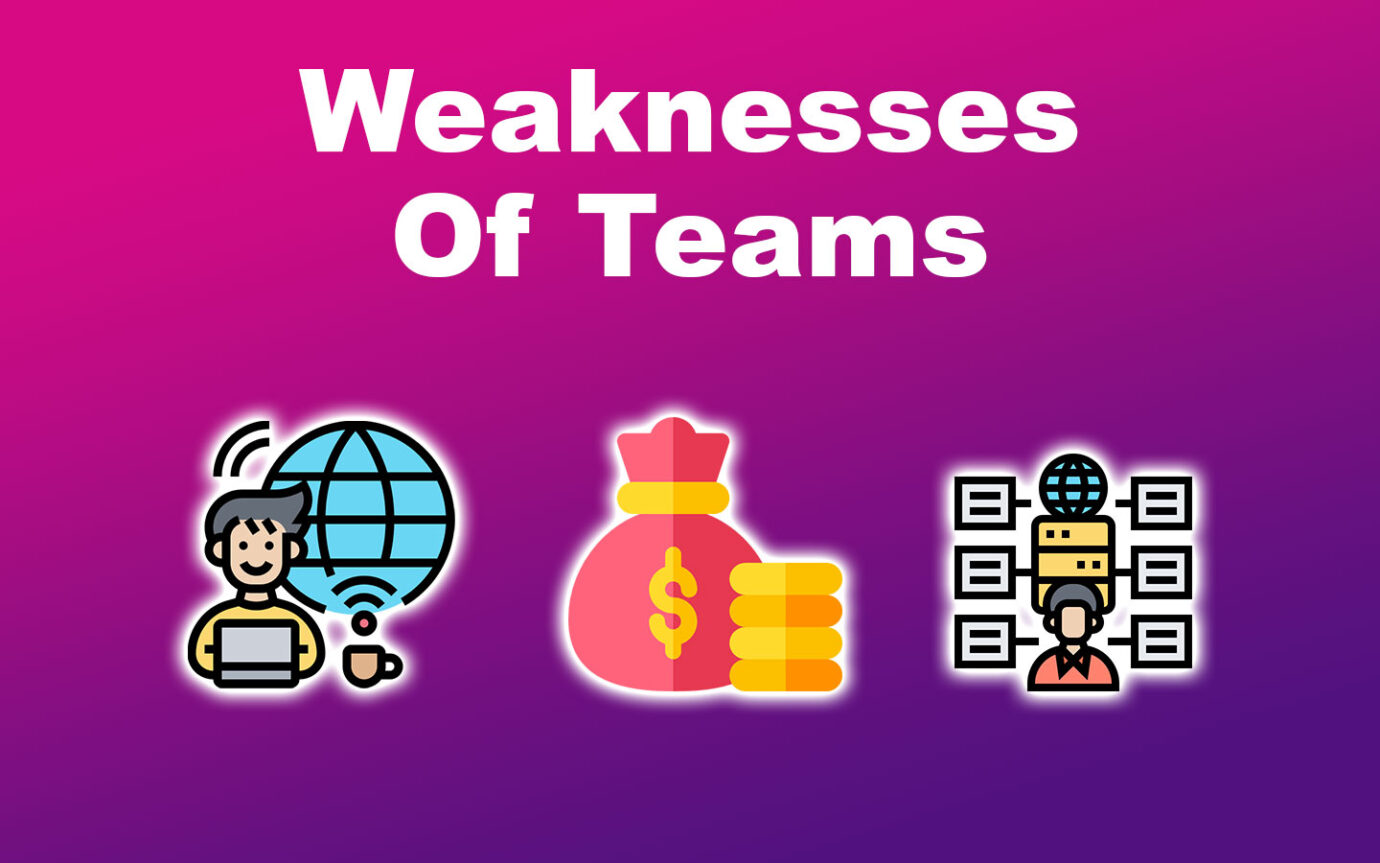
- Dependency on the Internet.
Microsoft Teams heavily relies on a stable internet connection for effective collaboration. Lack of internet access can cause disruptions and make it less reliable. - Costly.
While Microsoft Teams offers a free version, it has limited gestures and functionalities. To access the full features, you need a subscription, which might be expensive. - Complex to Use.
Although Microsoft’s basic features are user-friendly, its advanced features can be challenging for those unfamiliar with the technology. This is especially true for features related to shared team spaces.
Picking the Best Between Slack and Teams
The choice between Slack and Teams depends on your preference, as each platform has its own set of strengths and capabilities. Slack is user-friendly, with many integrations, while Teams boasts strong security features.
On the other hand, the platforms are costly and entirely depend on the availability of an internet connection. With this in mind, you should be able to make the best choice between Slack and Teams.